January 26, 2024
In the evolving landscape of residential solar power, the narrative has shifted dramatically from a symbol of affluence and environmentalism to a mainstream, economically wise choice.
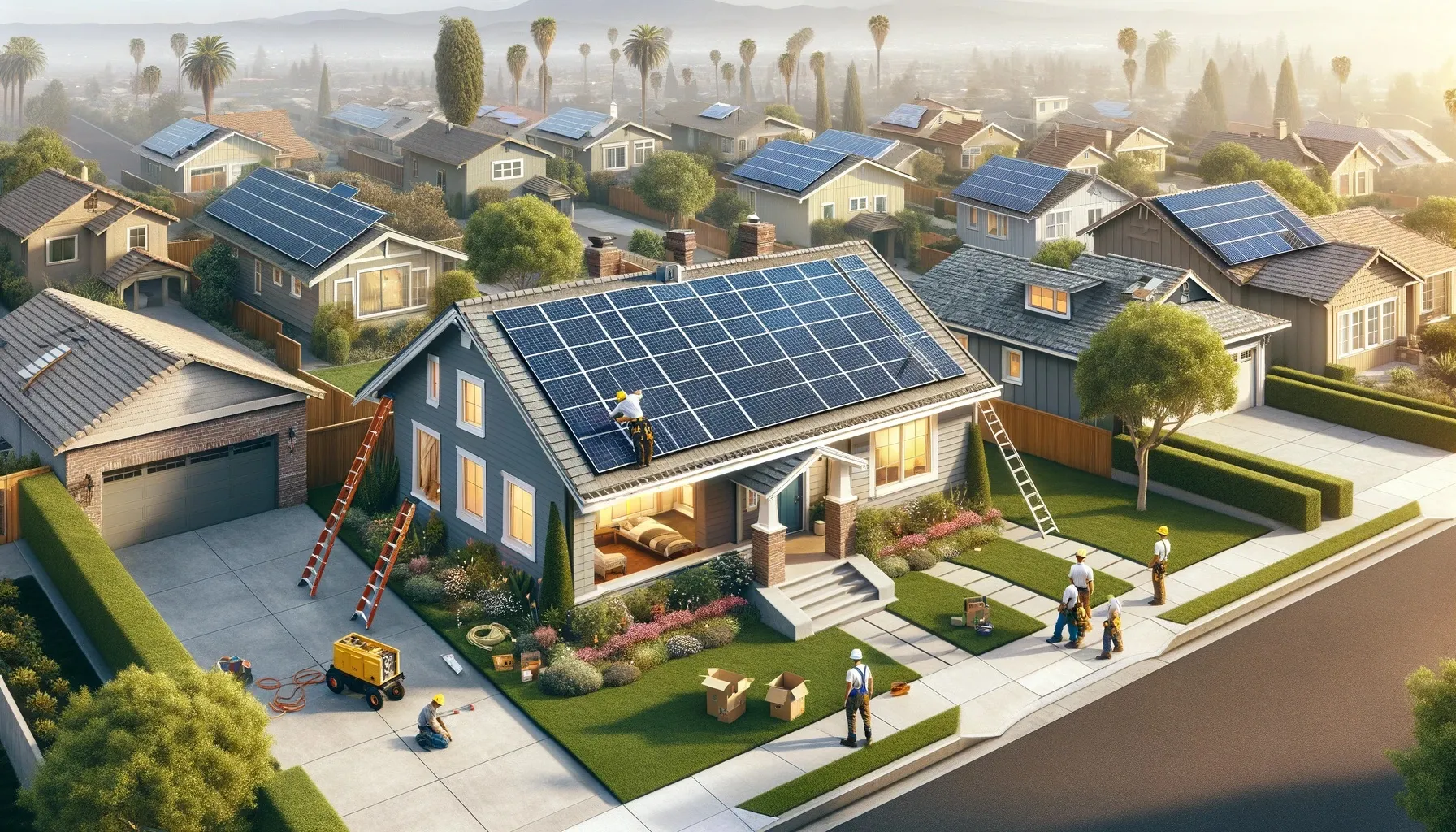
In a quiet suburb of California, the Johnson family made a transformative decision. Once reliant on traditional energy sources, they turned to solar panels to power their modest three-bedroom home. The change wasn't driven by a grand environmental crusade but by a practical look at their finances and future. The dropping costs of solar technology, combined with appealing financing options, made this switch not just feasible but financially savvy. As they watched their energy bills decrease, the Johnsons became part of a growing trend, reflecting a shift in the solar energy narrative from a luxury good to an accessible choice for average homeowners.
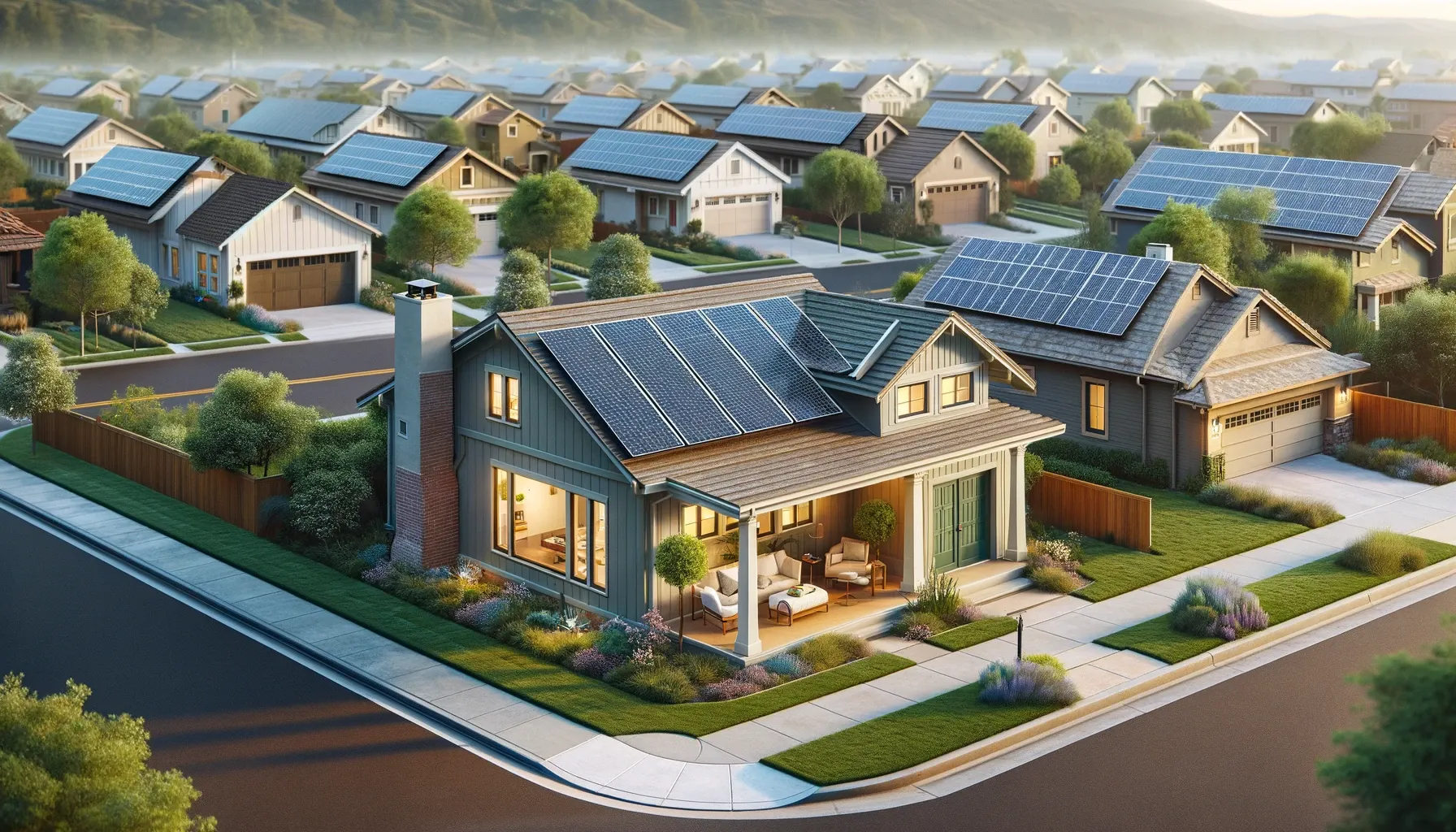
In the evolving landscape of residential solar power, the narrative has shifted dramatically from a symbol of affluence and environmentalism to a mainstream, economically wise choice. This transformation is exemplified in the story of the Johnson family in California, who, like many others, opted for solar panels not solely for environmental reasons but for practical financial benefits.
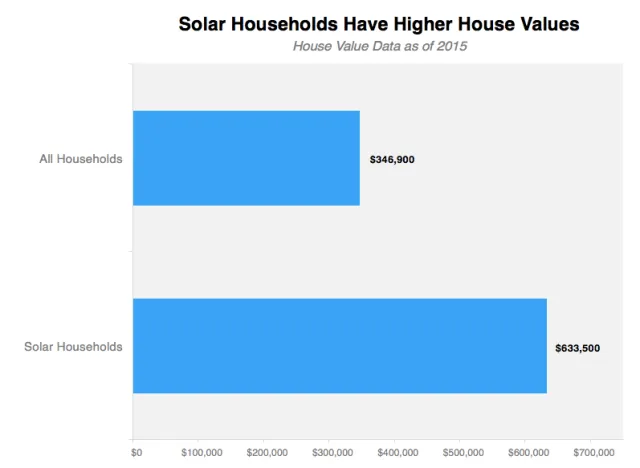
In the 1970s, the cost of solar technology was prohibitively high, almost a luxury item for the wealthy. However, by the late 2010s, the price of fully equipped solar panels plummeted to about 57 cents a watt. This remarkable decrease, coupled with no-money-down financing options, catalyzed a solar revolution in U.S. residential spaces. From a mere 30,000 homes in 2006, over a million had adopted solar power by 2016, a number expected to double shortly after.

But who are these new adopters of solar technology? Initially, solar panels adorned the rooftops of affluent homes, a status symbol for the wealthy and environmentally conscious. Yet, recent data from SolarPulse, covering over 11,000 Californian households from 2000 to 2015, reveals a significant shift. The income and home values of solar adopters have noticeably decreased since 2012, indicating a move towards the middle-class demographic.
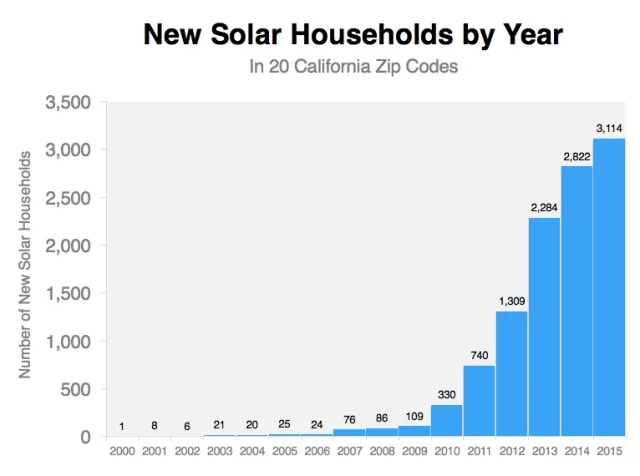
This democratization of solar energy is not just a matter of changing technology prices; it reflects a broader societal shift. Solar panels are increasingly seen as a financially sensible decision rather than an environmental statement. As solar energy becomes more accessible, the narrative shifts from luxury to practicality, from exclusivity to universality.
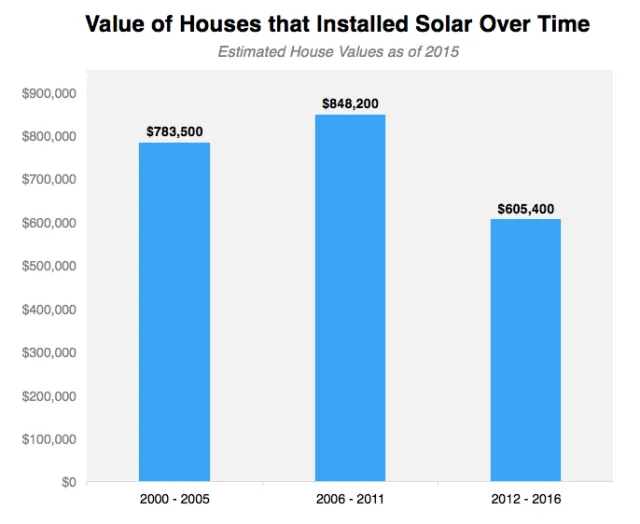
However, this increasing adoption of solar energy presents new challenges, particularly for the energy grid. While the grid incorporates more solar power, it still relies on traditional sources like gas for stability. This reliance underscores the need for a balanced approach to energy sources, blending renewable energy with traditional power to ensure consistent energy supply.
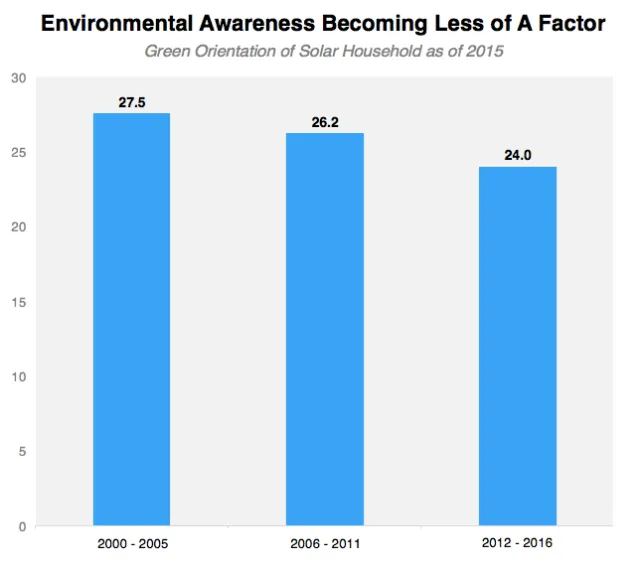
In conclusion, the story of solar energy in the residential sector is a powerful testament to the intersection of technology, economy, and societal values. It's no longer just a choice for the wealthy or eco-conscious but a practical option for many, shaping the future of energy consumption and reflecting the evolving priorities of society.